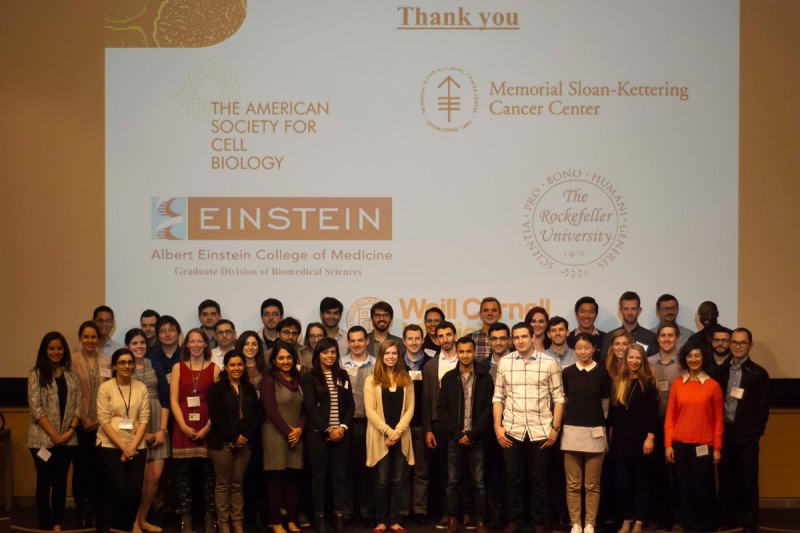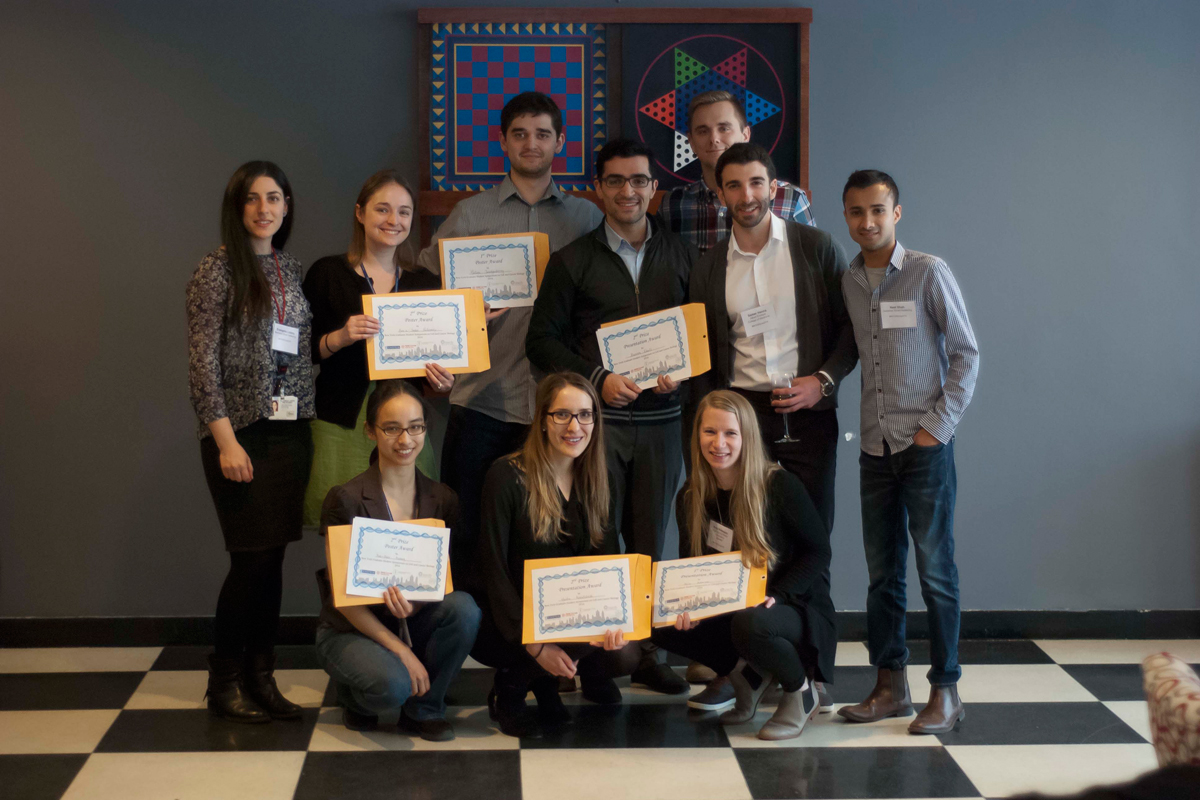
Memorial Sloan Kettering, Weill Cornell Medical College, and Rockefeller University hosted the Second Annual New York Graduate Student Symposium on Cancer and Cell Biology on Thursday, March 24. Students from the NYU School of Medicine, Cold Spring Harbor Laboratory, Columbia University, Albert Einstein College of Medicine, the Icahn School of Medicine at Mount Sinai, Rutgers, and the CUNY Graduate Center met with colleagues and shared data on a wide range of topics, including cancer genetics and metastasis, immune response to infection, and stem cell biology, among others.

Oral and poster presentations gave students a platform to interact and learn about new advances in their fields of study. Breakfast, lunch, and a wine and cheese reception provided an opportunity to network among local colleagues. At the day’s end, students voted by anonymous ballot for the top oral and poster presentations. Anja Hohmann, of Cold Spring Harbor and Chris Vakoc’s lab, gave a talk entitled, “A bromodomain-swap allele demonstrates that on-target chemical inhibition of BRD9 limits the proliferation of acute myeloid leukemia cells,” which was voted best overall. Marta Kovatcheva of the Koff Lab at MSK and Ozgur Oksuz of the Reinberg Lab at NYU tied for second best talks overall. Matias Jaureguiberry-Bravo from the Berman lab at Albert Einsten presented a poster entitled, “Effects of Buprenorphine on CCL2 mediated CD14+CD16+ Monocyte Migration in the context of neuroAIDS,” which was voted best overall; poster presentations from Yun-Huan Huang and Anna Sophia McKenney, both of the Weill Cornell/Rockefeller/Sloan Kettering Tri-Institutional MD-PhD Program, were second.
This unique recurring event is a student favorite and has fostered interactions that extend beyond the symposium and into the lab. We thank our generous sponsors — Weill Cornell Graduate School of Medical Sciences, Gerstner Sloan Kettering Graduate School of Biomedical Sciences, Rockefeller University, Albert Einstein College of Medicine, and the American Society for Cell Biology — for their vision and support of this fantastic event.